For the record: Stephen Harper’s lasting legacy
Former colleagues and advisors talk about the former prime minister’s place in Canadian history
Prime Minister Stephen Harper is silhouetted against a map of Northern Canada during a reception commemorating the Franklin Expedition at the Royal Ontario Museum in Toronto on Wednesday, March 4, 2015. (Darren Calabrese/CP)
Share
As Stephen Harper officially began his exit from political life with a farewell speech to the Conservative Policy Convention in Vancouver, Maclean’s asked several former colleagues and advisors what they see as his lasting legacy.
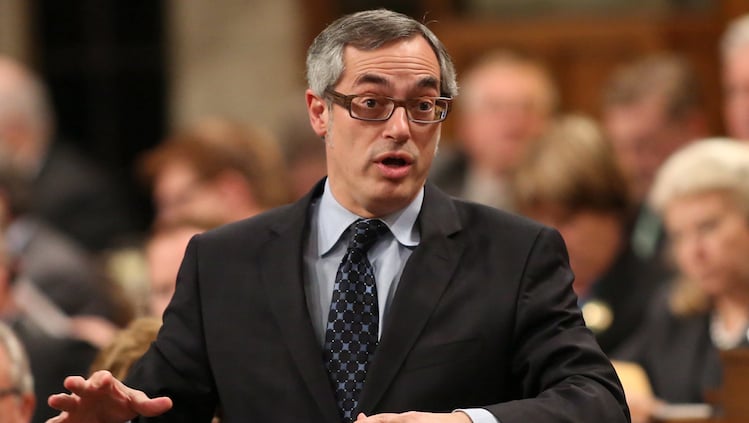
TONY CLEMENT
Former minister of Health, Industry and President of the Treasury Board; Conservative MP for Parry Sound-Muskoka
He’s going to be seen as one of the most successful Canadian prime ministers in Canadian history. It’s going to be a legacy that history will shine upon. In terms of domestic policy, he led a government that was incredibly successful in keeping the ship of state righted at a time of the worst global recession since the Great Depression. He kept taxes low. He primed the pump in terms of spending when there was a credit crisis affecting the entire world, but brought us out of the deficit when there was no further need for this kind of spending. He avoided the crises that other countries had to deal with.
I don’t think [the bad press] affected him, because he felt he was doing the right thing for the country. Maybe it wasn’t the right thing for him politically, in terms of being better liked or having adulation, but he thought it was the right thing for the country. People don’t talk about it, but we never had a national unity crisis under Stephen Harper, and that’s rare. Sometimes it was the things that didn’t happen rather than what did happen.
He was a relentless political machine that always took advantage of his advantages. I ran against him for leader 12 years ago, and in retrospect I scratch my head and ask, ‘What was I thinking?’ But here’s the thing: I ran against him, failed, and yet he appointed me to his first cabinet. He could have ground me down and tossed me into the trash heap but he didn’t do that.
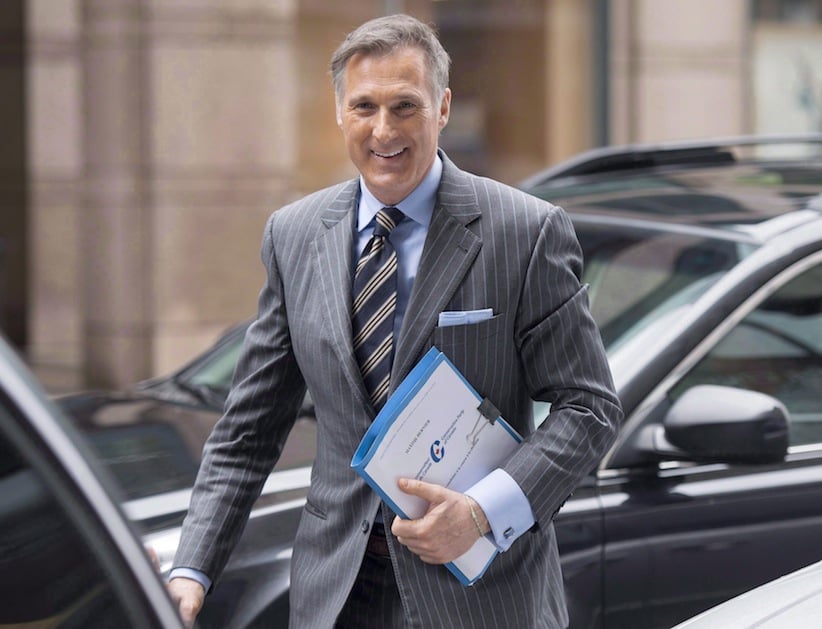
MAXIME BERNIER
Former minister of Industry, Foreign Affairs, and Small Business and Tourism; Conservative MP for Beauce
I think one of his most important successes before becoming Prime Minister was his uniting of the right and creating the Conservative Party. It’s what allowed us to take power in 2006. After that, what I remember most is his economic record. His signing of the free trade agreement with the European Union before the Americans will give access to some of the biggest and richest markets in the world. The negotiations were long and arduous, and it was a huge success for him.
The fact that Canada best weathered the world financial crisis because of our economic policies will mark history. Before Harper, there was an idea that was basically, ‘Tax me, I’m Canadian.’ When we had a problem, the knee-jerk reaction was to increase taxes. But Mr. Harper changed the rules, and now there’s a tendency in Canadian politics that governments now will have to think twice before a increasing taxes. We reduced income taxes, we cut the size of governments and had balanced budgets without cutting transfer payments to the provinces. That is all to the credit of Mr. Harper.
The most important aspect of Mr. Harper’s foreign policy was the change in how we viewed the Middle East and Israel. Before, the ministry of foreign affairs was to be an honest broker between Israel and Palestine. Under Harper, we were bigger partisans of the state of Israel. We believed that the two states could live in peace, but having clearer policies in regards to Israel, I think it was a big change.
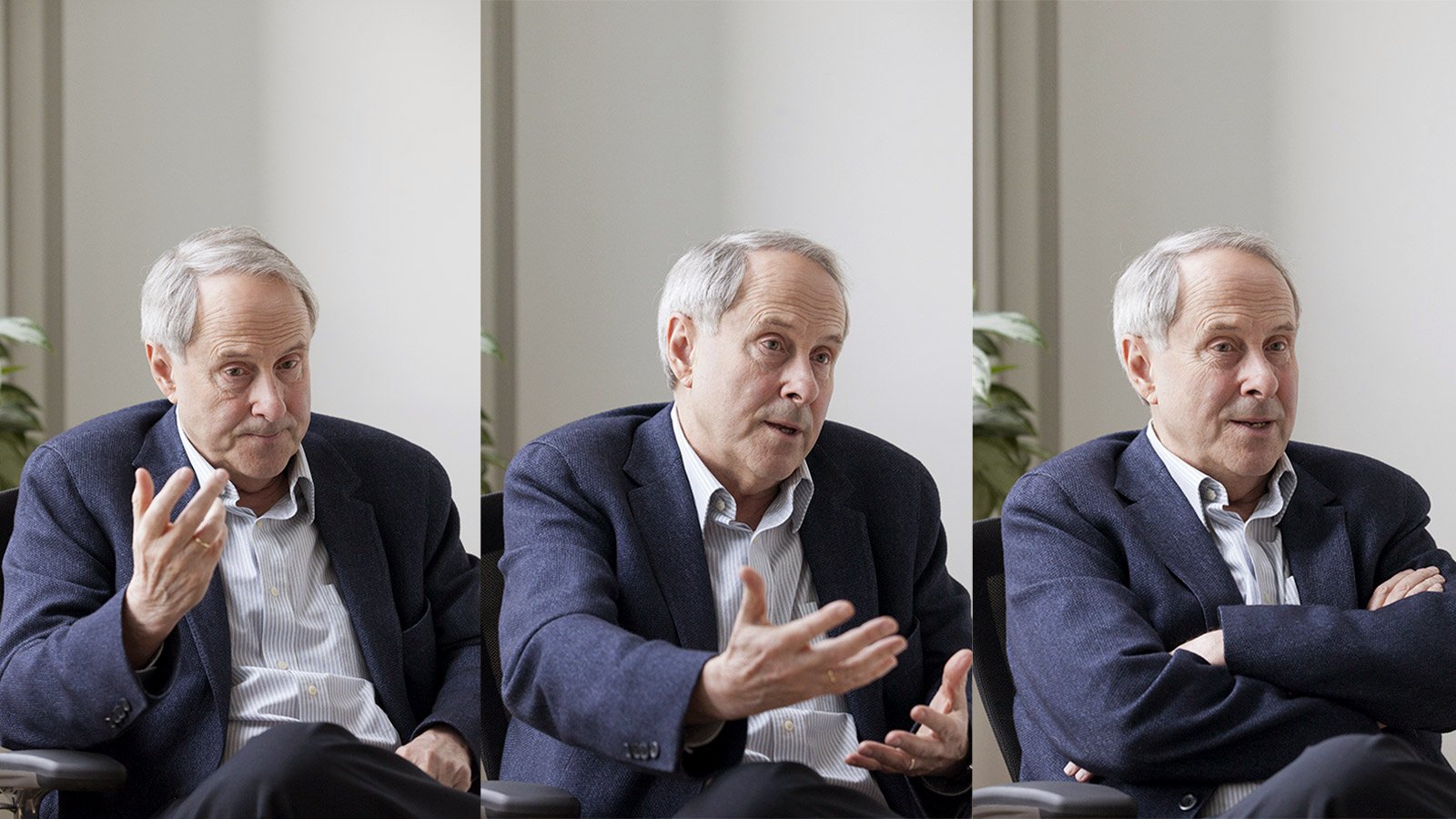
TOM FLANAGAN
Author, pundit and former Harper advisor; Professor Emeritus of Political Science, University of Calgary
I would imagine what he would see as his greatest achievement was the fact that the federal government takes in the lowest share of tax revenues in proportion to GDP in 50 years. He didn’t radically reduce the size of government, he kind of held the line. Overall, I think he’ll look back and say I kept government from growing much bigger. It’s not a permanent victory, obviously, because things may well change under the next Prime Minister, and it looks like they might.
One thing that probably hasn’t been discussed enough is redirecting our tax and transfer policies so that more revenue flows to families with children. The Liberals have picked up on that and even expanded it. They’re cutting some of the tax credits as well as some of the higher income people, but the general idea that parents with children deserve a better break from the tax system I think is something that here to stay, and it’s a major achievement.
I don’t think there is a big signature achievement like with [Brian] Mulroney and the Free Trade Agreement or with [Pierre] Trudeau passing the constitution in 1982. It’s more like [Jean] Chrétien, who when asked what he accomplished as prime minister said, ‘What do you mean? I was prime minister!’ Harper’s term was sort of like that. If there was a signature accomplishment for Harper it was before he became prime minister, when he created of a competitive alternative to the Liberals. When that happened, people were writing about how the Liberals were going to be in power forever.
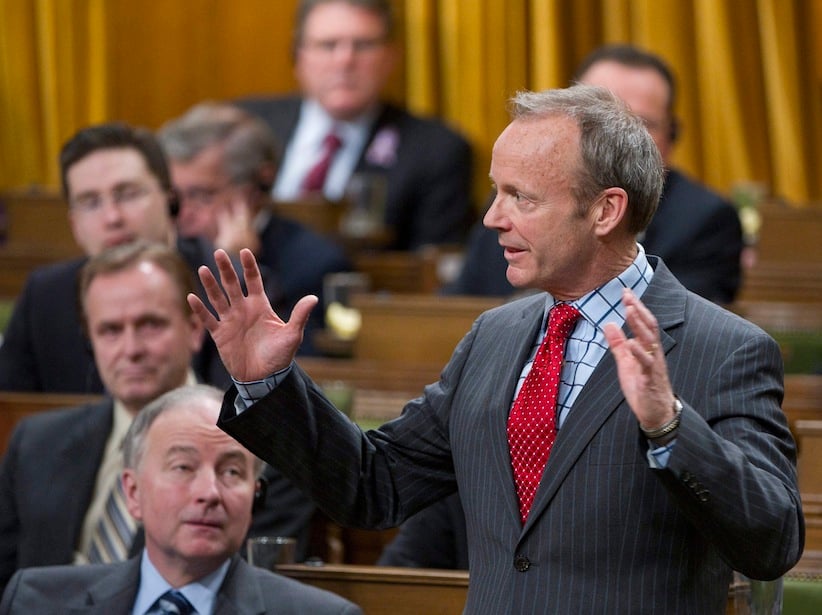
STOCKWELL DAY
Ex-leader of the Canadian Alliance; former Conservative minister of Public Safety, International Trade and President of the Treasury Board
He demonstrated that in our somewhat superficial media world, you can still get elected on principle, that you don’t have to sway in the wind. He was very good at clearly articulating, particularly on the economic side, what were the basic principles that can make the standard of living better for everybody and make us more prosperous. And he stuck to them.
On the international front, he was never one who pandered to the superficial. He was always very clear when he met with other leaders on what he believed worked and always open to cooperating. Whether it was our position on Israel—one of the clearest in the world, I think—or drawing a map of how to deal with a country that doesn’t have the same principles that we do, like a Communist regime; engaging while still raising concerns. It was a very Canadian approach.
What a lot of people don’t realize is how attuned he was to basic MP democratic expression. In our weekly caucus meeting anybody could go to the microphone and challenge him on any position that he was putting out there. If you were prepared, and you had the facts and you could make the pragmatic case, you could win the day. You wouldn’t always have your way, but you always had your say. Caucus was a meeting among equals. And at the cabinet table, the Prime Minister would often ask a cabinet minister what MPs thought about their proposals. In spite of the massive machinery of cabinet and government, he was very focused on making sure that MPs had their say.
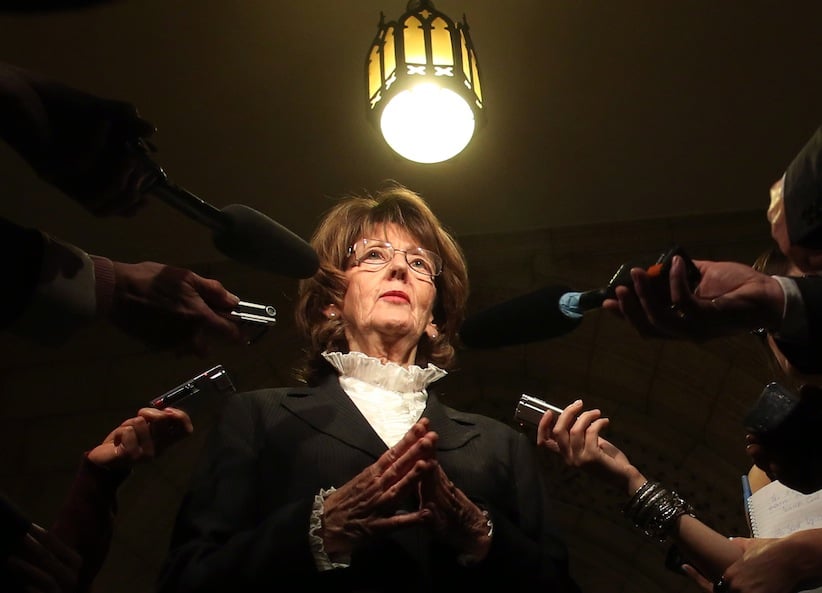
MARJORY LEBRETON
Retired Conservative Senator; former Leader of the Government in the Senate, staffer, advisor and confidant to every Tory leader since John Diefenbaker
He and our government got us through the worst economic situation the world has faced since the 1930s, with solid management and a very professional public service. We got all of the economic stimulus and infrastructure programs delivered that really gave the economy a shot in the arm. And all done without sponsorship-type scandal. That’s a major milestone.
It was a scandal-free government. There were no billion-dollar boondoggles, or cost overruns on gun registries. The Senate issue was particular to that chamber, and it was over $90,000—which ultimately, no matter how you stack it up, was repaid to the Canadian taxpayer, in rather strange, circuitous ways.
It was our government that brought in proactive disclosure in the name of transparency, and shone the light where it had never been shone before. And it was our government—I was the Senate leader at the time—that called in the Auditor General.
I’ve been through many iterations on this party. And after 10-years in government, we were defeated while still getting 32 per cent of the vote and 99 seats in Parliament. There were many years in the past that I would have considered that a victory. And there was unity. Despite what people might like to believe, the party is in very good shape and we still have great capability to raise money.
Personally, I admired his kind of no-nonsense style. He was not given over to overblown rhetoric, like Jean Chrétien. He did things for the right reasons. You’ll never see him hanging around Ottawa worrying about his legacy.
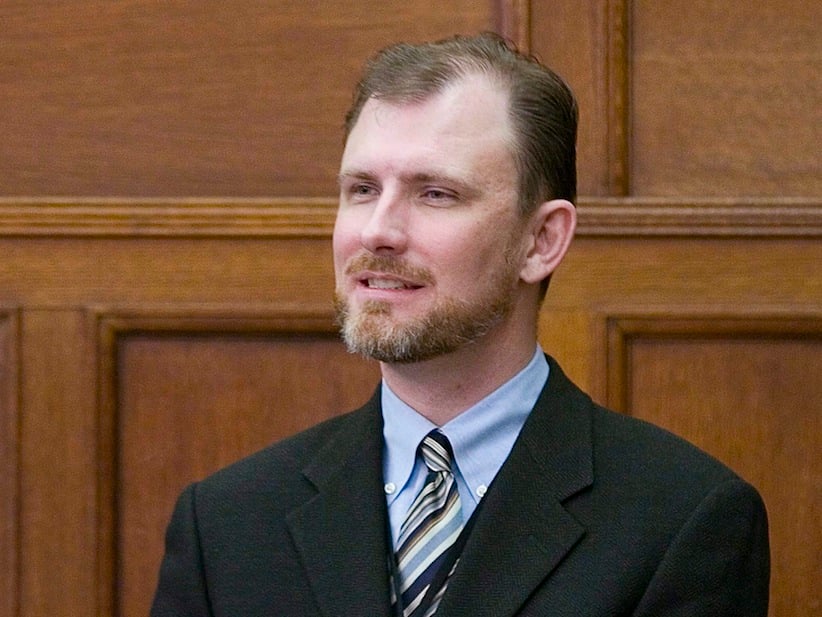
IAN BRODIE
Former Harper advisor; University of Calgary political scientist
He’s the only Conservative Prime Minister since Sir John A. Macdonald to leave both the party and the country more united than he found it. I think that’s the most important thing. I don’t think he killed off Quebec separatism, but I don’t think it’s any surprise that on his watch the Bloc has declined to a handful of seats in the House and the PQ is in trouble in Quebec. When we got elected in 2006, the Bloc was on the upswing because of the sponsorship scandal in Quebec. It was important for someone at the time to prove that wasn’t the face of the federal government in Quebec and I think he was a success at that.
It was very deliberate. The combination of dealing with the fiscal imbalance claims in Quebec and then the resolution that recognized the Québécois as a nation within a united Canada. The Bloc voted for that resolution, as did the other parties. And I think at that point, people looked at the Bloc, and said, ‘That’s settled. So why do we need them anymore?’ It wasn’t an issue that he was looking for, but once the Bloc put it on the agenda, he dealt with it quickly, dealt with it well and didn’t look back.
He meant what he said about respecting provincial jurisdiction and made lots of low-profile moves in that regard. But I think that moment in November 2006, when the parties came together unanimously, that put to bed a sore spot that had plagued Canadian politics for more than a generation. It put an end to a lot of unproductive polarization between federalists and nationalists in Quebec. He didn’t really reap the benefits in Quebec until his losing campaign, until it was too late. But I think the party is stronger for it, and the country is stronger for it.
The last several Conservative leaders have all left office with the party deeply divided—and in some cases splintered into separate parties. He brought everybody into the tent. A lot of people underestimated his ability to be a unifier on the conservative side of the spectrum, but he genuinely won over a lot of people who were not his biggest fans at the beginning. In my lifetime at least, he’s the first Conservative leader at the federal level who can say after his time in office that the party still thought well of his time in government.
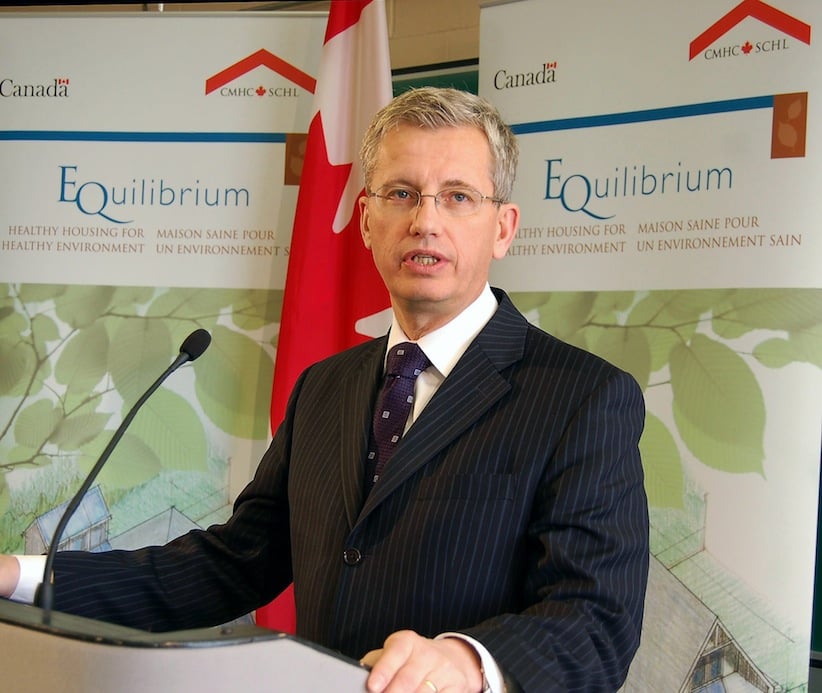
MONTE SOLBERG
Retired MP for the Reform, Alliance and Conservative parties; former minister of Immigration and Human Resources
A lot of people said he’d be very provincial and inward-looking, and he turned out to be a significant figure on the world stage. And some would say, and I’d be one of them, that he became one of the most adept people leading the G8 countries. Here he is — this hard-ass, “wants to go to war all the time,” “war-monger,” and he leads the charge on child and maternal health. That was and is being still being lauded. In fact, being lauded now more than when the decision was made. He was quite proud of the role Canada was playing, leading on childhood and maternal health.
When we first came, no question, he drew all the communications into the Prime Minister’s Office, and we couldn’t talk about issues. I think that was fine initially, but I think they went too far. I think they should have taken the restraints off earlier, case by case, minister by minister once they figured out how adept people were at communicating. They did loosen up with some people like Jason Kenney, John Baird, Flaherty — and others they just controlled the communication very tightly. I think people inferred from that he controlled everything top to bottom, and that’s not true. Not remotely true. It’s easy to criticize now, but I suspect Justin Trudeau will learn quickly that you’re as strong as your weakest link. You can have 27 strong ministers and one weak one, and the news will all be about that one weak one.
The pressure of the job caused him to change. He was never Mr. Happy-Go-Lucky, but he would joke around. And then as the pressure of the office came to bear, there was less of that. I noticed it in myself too. You get into that, you’re a hale fellow, well met. And all of a sudden you’re consumed with these issues. You get consumed with it and it’s hard to be aware of your environment. Some people are good at it; Chrétien was excellent at it. But Stephen Harper would have to consciously turn it on for public demand and then get right back in it again.
You come in to see him and Ray (Novak, Harper’s principal secretary) would say, ‘Sir, Monte’s here.’ And he’d be writing. He’s looked up for a second, but he doesn’t see me. He doesn’t know anything about what’s happening outside of what he’s working on. It would take sometimes a minute or two just for him to finish his thought and then realize it’s time to talk to one of the ministers in his office. That tells you a lot about who he is. That was his approach to everything in the office: complete devotion to trying to solve the problem at hand, then moving on to the next thing. I wasn’t offended by it. You could see who he was and what he was doing. On the other hand, I remember going up to Chrétien’s office when he was prime minister. Took my oldest son and his friend up to meet the prime minister. He says: ‘Monte, welcome! Come on in!’ And he’d show us the pictures on the wall. You could see why Chrétien was successful. But you could also see why Harper was successful. If being a man of the people is important to you, you’d like Chrétien. If you want someone dedicated with a big brain who was working on these big issues, you’d like Stephen Harper.
—As told to Jonathon Gatehouse, Martin Patriquin and Jason Markusoff
HARPER’S TENURE IN PICTURES:
[rdm-gallery id=’927′]